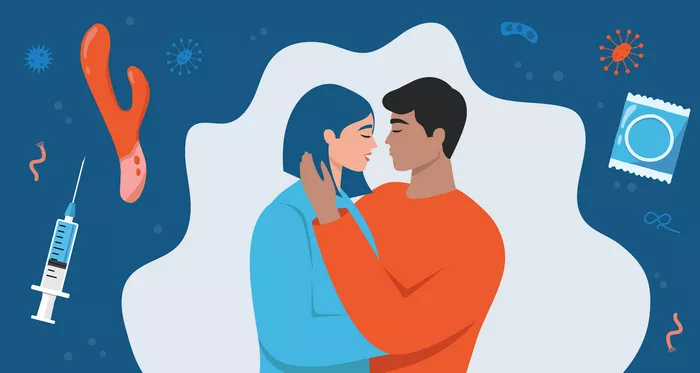Infertility can be a challenging and emotional journey for many couples. Understanding the costs associated with infertility testing is essential for making informed decisions about your reproductive health. In this article, we will explore the various factors that influence the cost of infertility testing, the types of tests involved, and what patients can expect regarding expenses.
Understanding Infertility
Defining Infertility
Infertility is defined as the inability to conceive after one year of regular, unprotected intercourse for women under 35. For women aged 35 and older, the timeframe is typically reduced to six months. Infertility can affect both men and women, and it can be caused by various factors. Understanding the root causes is crucial for determining the appropriate testing and treatment options.
Why Testing is Important
Infertility testing helps identify underlying issues that may affect conception. Early diagnosis can lead to more effective treatments and increase the chances of achieving a successful pregnancy. Testing can reveal problems such as hormonal imbalances, ovulation disorders, structural issues in the reproductive organs, or sperm quality problems.
Types of Infertility Tests
Initial Consultation
The first step in infertility testing usually involves an initial consultation with a fertility specialist. During this consultation, the doctor will take a detailed medical history, conduct a physical examination, and discuss any relevant lifestyle factors. This consultation typically costs between $150 and $300, depending on the provider and location.
Blood Tests
After the initial consultation, various blood tests may be ordered to assess hormone levels and overall reproductive health. Common blood tests include:
Hormone Level Testing: Tests for estrogen, progesterone, and follicle-stimulating hormone (FSH) help evaluate ovarian function.
Thyroid Function Tests: These tests assess thyroid hormone levels, which play a crucial role in reproduction.
Prolactin Levels: High levels of prolactin can interfere with ovulation.
The costs for blood tests can vary widely. On average, patients might expect to pay between $100 and $500, depending on the specific tests required and whether insurance covers them.
Imaging Tests
Imaging tests help evaluate the reproductive anatomy. Common imaging tests include:
Transvaginal Ultrasound: This test allows the doctor to examine the ovaries and uterus. The cost typically ranges from $200 to $500.
Hysterosalpingography (HSG): This X-ray procedure checks for blockages in the fallopian tubes and assesses the uterine cavity. The cost of an HSG can range from $500 to $1,500.
Sonohysterogram: This ultrasound uses saline to create a clearer picture of the uterus. The cost is usually between $300 and $800.
Semen Analysis
For male partners, a semen analysis is a critical component of infertility testing. This test evaluates sperm count, motility, and morphology. The average cost of a semen analysis ranges from $150 to $400. Depending on the findings, additional testing may be necessary, which could increase costs.
Additional Diagnostic Tests
In some cases, further diagnostic tests may be required to pinpoint the cause of infertility. These tests can include:
Laparoscopy: This surgical procedure allows the doctor to look inside the pelvis and diagnose issues such as endometriosis or pelvic adhesions. The cost of laparoscopy can range from $5,000 to $15,000, depending on whether it is performed in a hospital or outpatient setting.
Endometrial Biopsy: This test examines the lining of the uterus to identify issues such as polyps or hyperplasia. Costs typically range from $500 to $1,500.
see also: What Is HSG Test for Females?
Total Cost of Infertility Testing
Breakdown of Costs
The total cost of infertility testing can vary significantly based on several factors, including:
- The number of tests required
- The specific tests performed
- The location of the testing facility
- Whether insurance covers any portion of the costs
On average, couples may expect to spend anywhere from $1,500 to $5,000 for a comprehensive infertility testing evaluation, including initial consultations, blood tests, imaging studies, and semen analysis.
Insurance Coverage
Insurance coverage for infertility testing varies widely by policy and location. Some insurance plans cover a portion of the costs, while others may not cover any infertility-related services. It is essential to review your insurance policy or contact your insurance provider to understand what tests are covered and any out-of-pocket expenses you may incur.
Financial Assistance and Payment Plans
Many fertility clinics offer financial assistance programs or payment plans to help couples manage the costs of infertility testing and treatment. Some organizations also provide grants or scholarships for couples facing financial hardships. It is advisable to inquire about available options when considering infertility testing.
The Importance of Comprehensive Testing
Comprehensive Approach
Investing in comprehensive infertility testing can lead to better treatment outcomes. Identifying the underlying causes of infertility allows for targeted interventions. This approach may save couples time and money in the long run by avoiding unnecessary treatments that may not address the root cause.
Psychological Considerations
The emotional toll of infertility can be significant. Knowing that you are undergoing a thorough evaluation can provide some peace of mind. It is essential to have a supportive partner and, if needed, seek counseling or support groups to navigate the emotional challenges that may arise during the testing process.
Conclusion
Infertility testing is a crucial step in the journey toward parenthood for many couples. Understanding the costs associated with these tests can help you plan and make informed decisions. On average, the total cost can range from $1,500 to $5,000, depending on the specific tests required and insurance coverage.
Comprehensive testing can help identify the underlying causes of infertility and guide couples toward effective treatments. If you are considering infertility testing, consult with a qualified fertility specialist to discuss your options, costs, and potential financial assistance programs. Remember, you are not alone in this journey, and support is available to help you navigate the complexities of infertility.
Related topics:



























